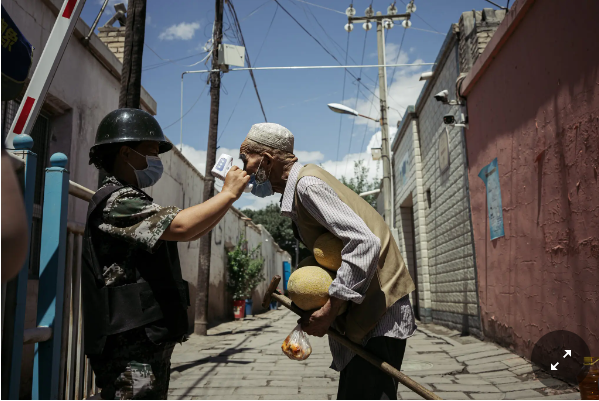
New York Times (Opinion)
Important Note: AllSides provides a separate media bias rating for the The New York Times news pages.
This page refers to The New York Times opinion page, including op-ed writers and the Editorial Board. The Editorial Board’s bias is weighted, and affects this bias rating by roughly 60%. Not all columnists for the New York Times display a left bias; we rate many individual writers separately (see end of this page). While there are some right-leaning opinion writers at the Times, overall the opinion page and Editorial Board has a strong Left bias. Our media bias rating takes into account both the overall bias of the source’s editorial board and the paper’s individual opinion page writers.
Late last month, in a stunning display of frustration, people in multiple cities across China took to the streets to protest “zero Covid” policies. The calls to “jiefeng” — release the lockdown — evolved quickly into something more like calls for “jiefang” — liberation — as protesters shouted explicitly for freedom, free speech and democracy.
The Chinese party-state mobilized its massive security apparatus in response, and while in some places people are still clashing with police officers, the headiest moments of the “white paper revolution” may have passed. Still, before China settles into an uneasy winter of discontent, it’s worth pausing to remember an important fact that is currently at risk of becoming a footnote: The catalyst for these remarkable nationwide, cross-society protests, the likes of which have not been seen since the demonstrations of 1989, was a deadly fire in Urumqi, the capital of the Xinjiang Uyghur region, where acts of massive repression by the Chinese state may amount to “crimes against humanity,” according the U.N. High Commissioner for Human Rights. Those killed in the fire were almost certainly Uyghurs.
Does the ethnicity of the victims here matter? Many would say it does not. Though the scenes of Han people across China mourning the dead from Xinjiang were remarkable and deeply moving, the grief seemingly arose primarily from basic humanity and solidarity with the victims as fellow Chinese, all suffering in common from the excessive, irrational and dangerous “zero Covid” regime. According to reports, the victims died because lockdown measures impeded them from escaping the burning apartment block. (Officials have denied this.)











